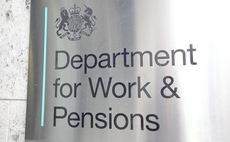Moves to force organisations to disclose security breaches could just lead to 'notification fatigue'
Companies in the US now have an obligation to publicly disclose details of data breaches they suffer, and there are increasing signs that the UK will have to implement similar rules under proposed ...
To continue reading this article...
Join Computing
- Unlimited access to real-time news, analysis and opinion from the technology industry
- Receive important and breaking news in our daily newsletter
- Be the first to hear about our events and awards programmes
- Join live member only interviews with IT leaders at the ‘IT Lounge’; your chance to ask your burning tech questions and have them answered
- Access to the Computing Delta hub providing market intelligence and research
- Receive our members-only newsletter with exclusive opinion pieces from senior IT Leaders






















